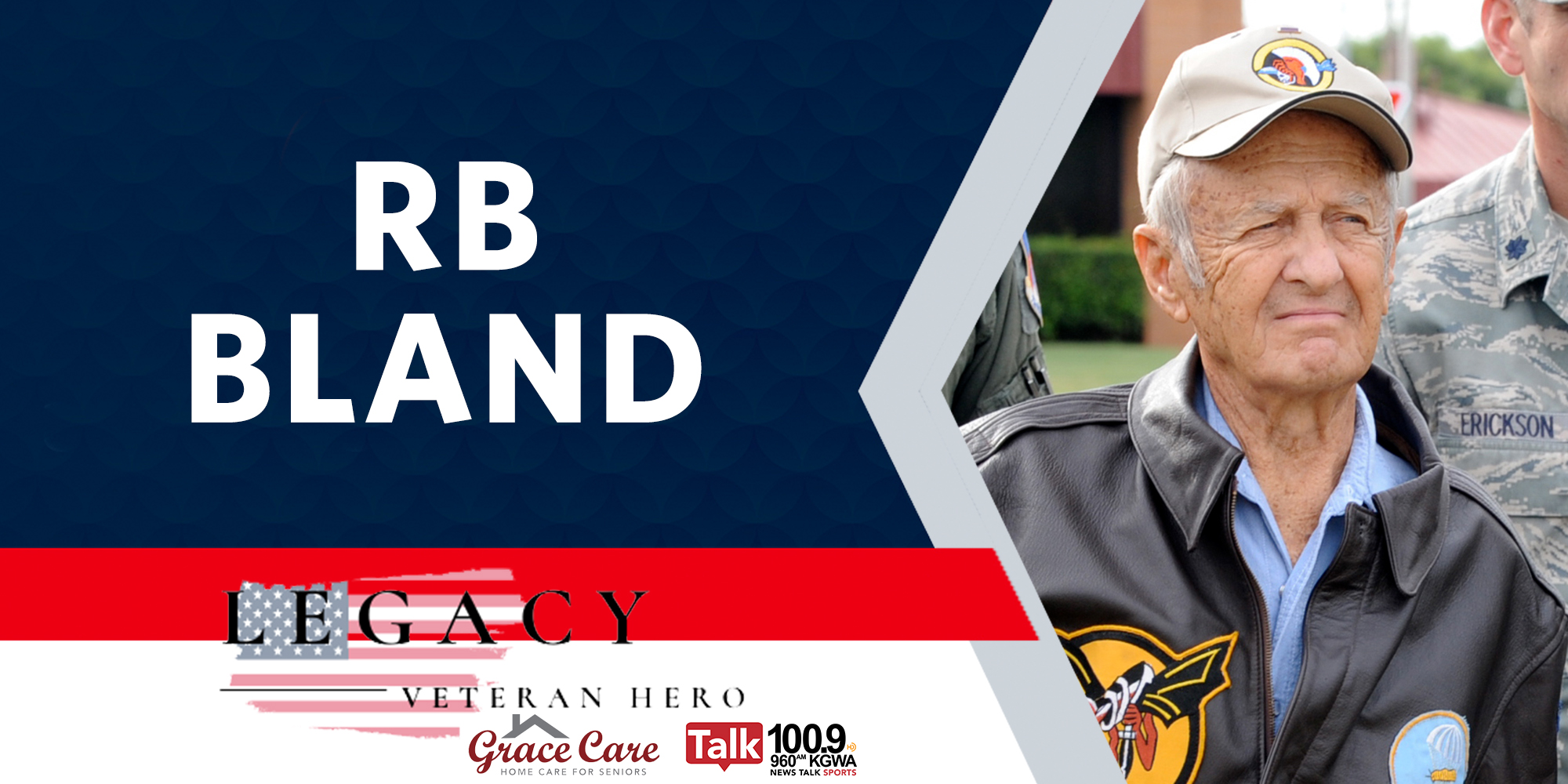AIN(&)APOS;T ALWAYS THE COWBOY by JON PARDI
9:58pm

Air Force Introduction of the Legacy Veteran – RB Bland
The airmen who wear the uniform today continue to protect our nation and our way of life. And they are upholding a tradition of honor, bravery and integrity set by America's veterans. Most of you here today have defended this country with unselfish courage. You've earned the respect of our citizens and community. And we thank you for your service for the cause of freedom and peace.
Sacrifice, honor, bravery are words that describe our next recipient. On the road to Woodward, as a young 17 year old boy, he observed the aircraft flying overhead from Enid Army Air Field. The EAAF widely used local civilian airports for support training for aircraft operations and landings. He noticed one of the planes appeared to be having mechanical trouble and witnessed the plane crash to the ground. The aircraft cart wheeled and caught on fire, causing the death on one airman on the scene. Seeing the other pilot still strapped into the burning plane, he disregarded his own safety and ran to the aircraft pulling the young aviator out of the plane to safety. Although the 2nd airmen died three days later, he didn’t think twice about giving his life for another. He was invited to attend the graduation of the class by the Base Commander and realized that he no longer wanted to enlist in the US Army but chose to be a cadet in the US Army Air Corps. Dying to be involved in the war overseas, he and his twin brother, Dwain enlisted, both wanting to be pilots but by the time they joined there was an overabundance of them, so it was off to gunnery school, R.D. became a waist gunner and Dwain a tail gunner on the B-17.
Stationed in Ridgwell, England, as a waist-gunner on the B-17, dubbed the Fox after a favorite local pub, Bland and his crew were on their way back from a bombing mission of an oil refinery at Brux, Czechoslovaki and were hit at about 28,000 feet. It was his 5th mission. Dropping fast, the pilot told them to bail out, some of the crew ending up in enemy territory, some ended up in allied territory. On February 14, 1945, this Staff Sergeant floated to earth in his parachute knowing that where he landed he would not be wanted. He landed in a forest near the Germany/Luxenburg border and was taken captive within 15 minutes of landing.
Approached by a couple of young Germans about his age he was taken prisoner at gunpoint to the local village. He was transported by truck, trains and on foot and was reunited with three of his crew members. The prisoners were kept on the move most of their captivity sleeping in ditches and barns. He lost 45 lbs during his captivity eating occasionally, if you were lucky, and mostly black bread. Black bread was made with rotten rye grain, sugar beets, saw dust, leaves and straw.
The Air Force was constantly bombing the trains so the crowded railcars were stopped and the men were evacuated during the bombing raid. On one occasion the P-47’s were doing a scraping and bombing raid and the train came under friendly fire. 200 prisoners were quickly removed from the cars taking shelter in an embankment, shots were being fired from all directions but he wasn’t fearful because he found refuge in the fir trees. They were so wide you could easily find shelter behind them.
He was held captive almost 4 months at a large camp, Stalag VIIA, north of Moosberg, Germany until the end of the war. Early estimates put the number of POWS freed at 27,000 but it was actually closer to 110,000 liberated.
Ladies and Gentlemen, our US Army Air Force Legacy Veteran of the Year, R. D. Bland
Built on Envisionwise Technology. Administrator Login
